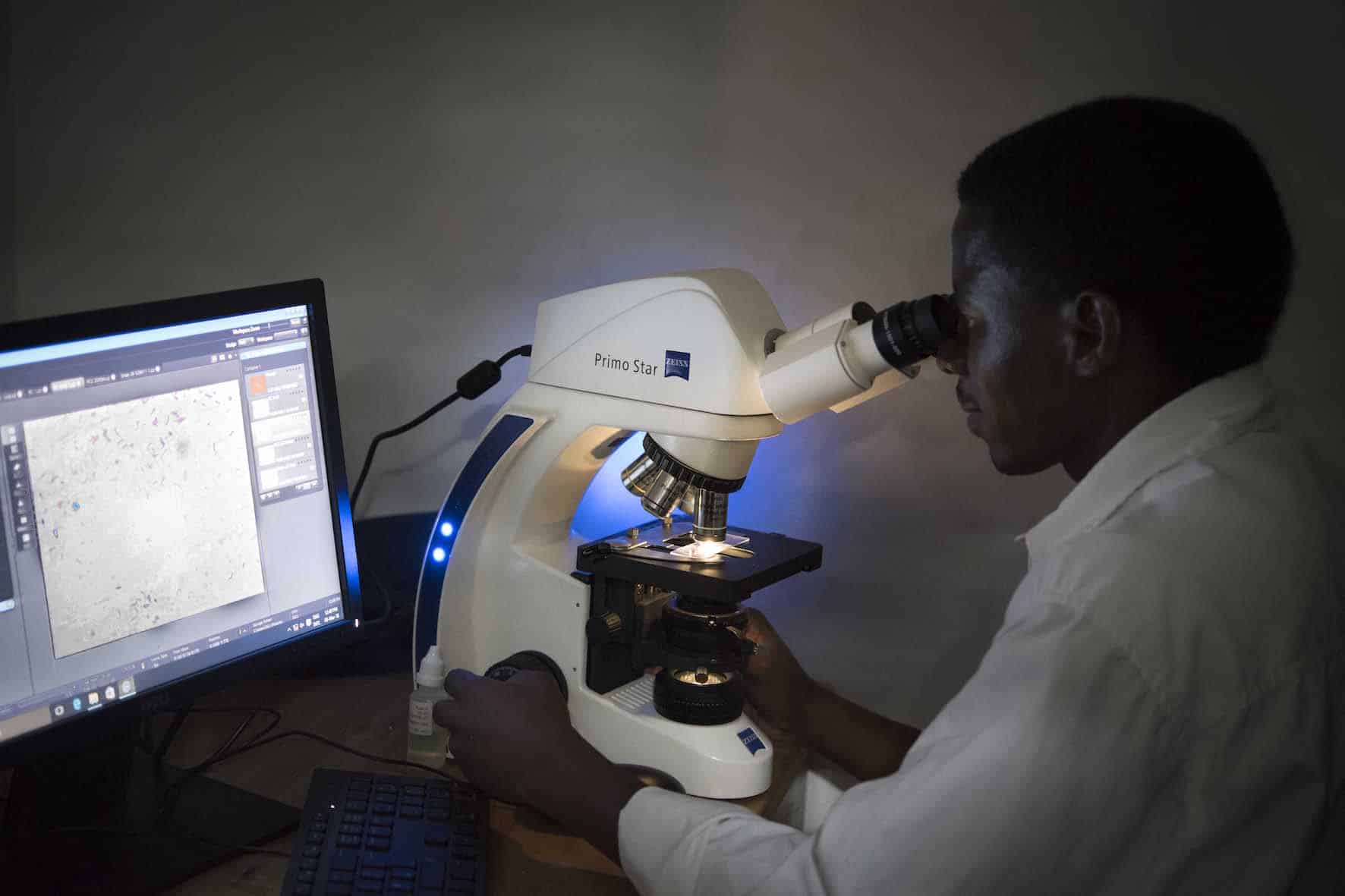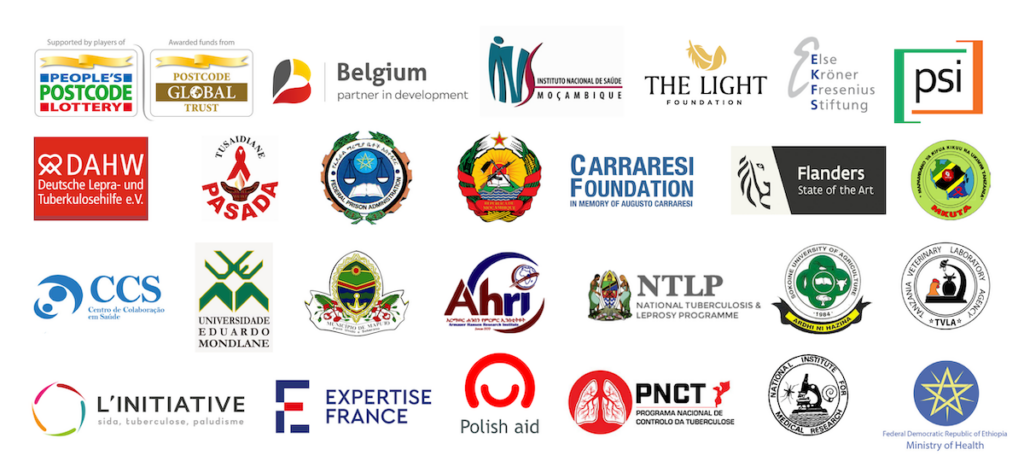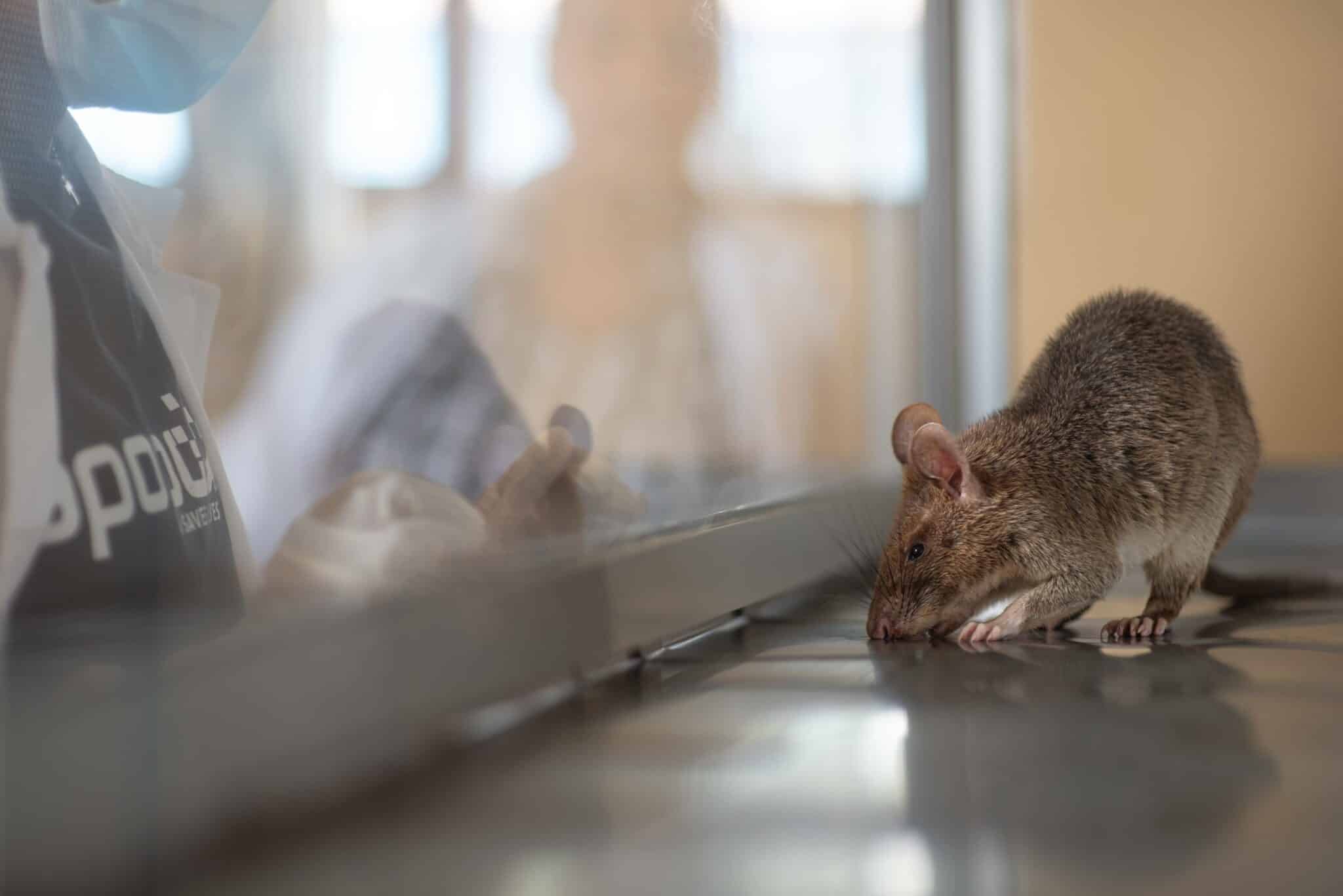At APOPO, our pioneering work with trained African giant pouched rats in the detection of tuberculosis (TB) continues to advance the boundaries of medical research. Our latest study, spearheaded by APOPO’s Head of TB, Dr. Tefera Agizew, and titled “Increased tuberculosis case detection in Tanzanian children and adults using African giant pouched rats,” offers insights into the capabilities of our TB detection rats, notably in identifying TB cases that traditional diagnostic methods may overlook.

APOPO’s TB detection rats (aka HeroRATs) are a second-line screening tool in the fight against TB. After initial screenings using conventional methods, samples that may have yielded negative results are then presented to the trained rats. The rats, capable of detecting tuberculosis through the scent of Volatile Organic Compounds which is specific to the TB disease, quickly sniff these samples and indicate which ones they suspect are positive. The findings flagged by the rats are subsequently sent for confirmation through standard laboratory tests, ensuring the accuracy and reliability of the diagnosis before any medical treatment is initiated. This approach helps capture more cases by catching those that traditional screening methods might miss, thereby enhancing the overall effectiveness of TB control programs.
Study Outcomes: Enhanced TB Detection
APOPO’s latest research shows that our trained rats detected over half (52%) of the TB cases in our program settings — cases that would likely have been missed by conventional health programs. Dr. Tefera Agizew highlighted the significance of these findings: “Our rats significantly enhance TB case detection rates, particularly in settings where traditional health programs might overlook such cases.” This demonstrates the potential of our detection rats as an invaluable complement to existing TB diagnostic methods, providing a novel approach that could reshape TB screening protocols worldwide.
Detection of Lower Bacterial Loads
The ability of our rats to detect TB in samples with lower bacterial loads is particularly noteworthy. It suggests that rats can identify TB at its earliest stages, which is critical for timely treatment and to reduce the spread of the disease. Early detection is essential in the fight against TB, and the unique sensitivity of our rats to low bacterial loads could dramatically alter the landscape of TB management, making it possible to tackle the disease before it advances to more critical stages.
According to the World Health Organization (WHO) each untreated person living with TB may infect an average of 15 other people in their immediate community. This sobering statistic shows just how important diagnosing and treating TB in its early stages is to preventing the uncontrolled spread of the disease.
Advantages in Pediatric TB Detection

The study also demonstrated the exceptional performance of our rats in detecting TB in pediatric patients, who are typically harder to diagnose due to subtler symptoms and the challenges in obtaining reliable sputum samples. Our findings indicate that our HeroRATs are more adept at detecting TB in children, who generally have lower bacterial loads than adults. This capability is a significant advancement in pediatric TB management, offering a promising new tool for early detection and treatment in this vulnerable population.
Additionally, the results from our study suggest extensive implications for the future of TB diagnosis, especially in enhancing detection capabilities in under-resourced settings. Integrating our rat-based detection system into broader TB diagnosis efforts could substantially improve global health outcomes. By effectively identifying TB in cases with lower bacterial loads and in pediatric cases, our detection rats offer a critical service, filling a gap left by traditional diagnostic methods.
Research Opportunities in VOC Analysis
Further research into the Volatile Organic Compounds (VOCs) which are specific to the TB disease, detected by our rats, could lead to significant improvements in our training programs and the overall sensitivity of our detection system. This research could also propel the development of new electronic sniffing technologies that mimic the olfactory capabilities of APOPO’s rats. Understanding the specific VOC patterns in children versus adults will refine our approach and potentially offer new diagnostic solutions that are quicker and more effective.
Expanding Impact Through Global Health Strategies

Adopting our rat-based detection methods on a larger scale could revolutionize how TB is screened and treated, particularly in areas where access to conventional diagnostic facilities is limited. Our approach not only offers a cost-effective solution but also enhances accessibility, making it especially valuable for remote or resource-poor regions. As we continue to refine our methodology and expand our operational scope, the potential for our detection methods to be adapted for other infectious diseases grows, highlighting the versatility and broad applicational possibilities of our work.
Pioneering Change with APOPO’s Detection Rats
APOPO is committed to driving innovation in global health through our unique solutions. The success of our TB detection rats illustrates the potential for broader application of animal-assisted detection technologies in health care. Dr. Tefera Agizew remains optimistic about the future impact of this research: “Exploring the unique capabilities of these rats opens new pathways for public health innovation and disease management,” he says.
This study confirms the role APOPO’s detection rats can play in combating TB globally. By leveraging their unique detection capabilities, we are pioneering new methods in public health that could have a significant impact on disease management and control. At APOPO, we view our detection rats as more than just a scientific novelty—they are an effective tool in the global fight against tuberculosis, poised to make significant contributions to public health for years to come.
Adopt TB detection rat Carolina and extend APOPO’s research capacity to save lives in Tanzania.
APOPO is deeply grateful for the support and generosity of our partners and donors over the years including the health authorities in the countries it works.


